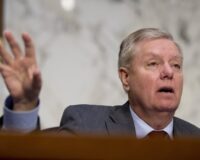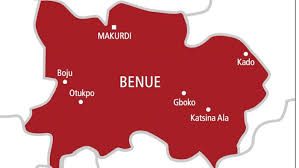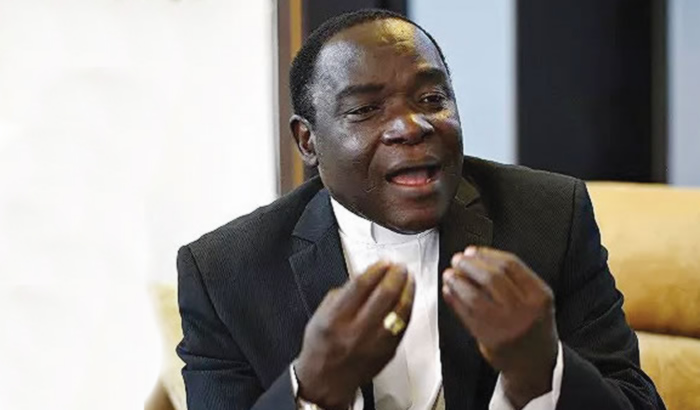By Ibe Pascal Chinedu Arogorn
The gleaming, scorching demand for restructuring as a result of gross imbalance in revenue allocation sharing formula may be greeted by a tinderbox early conflict of restructuring even though we Nigerians never stepped into it .
It has become a bad damage control, I learnt that in a bid for quick independence from the colonial masters in 1959, Nigeria nationalists and leaders went into a concession of deceit with northern conservatives for a 53% allocation formula This is the same region that opposed restructuring/regionalism, self govt which brought about Kano riot in 1956.
It has continued to Hunt till today.
Several decades after Lord Lugard amalgamated the Northern and Southern protectorates in 1914, and 58 years into the nation’s political independence, there is still agitation by certain individuals and some groups of people in their desire to determine the nature of the political system in Nigeria, Africa’s most populous nation. After many years of military dictatorship, many expected that the advent of the Presidential System of Government, which was ushered in by the 1999 Constitution (now with amendments), would actually address some of the concerns about national unity and the economic prosperity of the nation. But, almost two decades into the adventure, it would seem that Nigeria is still far from achieving this. In proffering solutions to this issue, many recommendations have been advanced, many of which support the concept of “restructuring,” which has become one of the most popular terms in the Nigerian political milieu today.
Although, the word “restructuring” had been within the political lexicon for the last three decades or so, there has never been any time that its demand in the Nigerian polity has been this audibly pronounced. Whether invoked as political campaign strategy or used as a ploy to oppose the government in power, restructuring has sparked debates from different angles. Nevertheless, it would appear that there is no consensus yet on what restructuring means. The Minister of Information, Lai Mohammed had revealed:
it is not the government that is not clear about what restructuring means, rather it is the people who are asking for restructuring who are not clear about what restructuring means.
Nigeria’s information minister, Lai Mohammed’s statement alluded to non-uniformity in the definition of restructuring as provided by many of its proponents, it also suggests in clear terms that the current move toward the restructuring of Nigeria is not being championed by the government, but by certain individuals and organizations who wish that the government would buy into this movement. Meanwhile, Matthew Ogih, who lampooned the state of having conflicting definitions, averred that having a proper understanding of the intended restructuring is critical to its implementation.
It has been argued that the present political landscape has concentrated powers at the center, making the states and local government very weak. As a result of this quagmire, many have advocated that the political structure be devolved from the center to the federating unit as against the current system, which tends towards unitary system of government.
Resource control has been another burning issue. The proponent of this idea would readily cite the success story of the South West, which judiciously utilized its resources from the export of cocoa to develop its region. Regrettably, with the over dependence on oil, these hitherto buoyant States are now more or less begging States.
There is agitation over the need to create additional States. The logic here is that States with large landmass may be unable to cover the needs of their residents.Oyo State for example is too big to be handled by an administrator. However, it is the view of the researchers that much more is required than State creation if Nigerians are going to truly enjoy the dividends of democracy.
With the spate of killings in Nigeria and the inability of the security outfits to combat this crime,16 it has been suggested that the federal structure of the Nigerian police will be unworkable, going forward. The Peace Corp Bill sent to the President for presidential assent was declined. Many have also advanced that States should be made to have their State-level police. The merit in this argument is that it would facilitate intelligence gathering. This could also encourage the State government to provide more support to the police. However, while State police might be helpful, if other issues affecting functionality of the police are not addressed, the situation might remain unchanged. For example, if the police remain unequipped, their capacities to combat crime remain unimproved and if the wanton corruption in the police force is not squarely addressed, it is unlikely that the restructuring of the police would achieve any meaningful result. By the way, the police could become the tool for manipulations, just as State Governors have also hijacked the activities of the State Electoral Commissions across the 36 States of the Federation.
The experience of many local government areas in the last three years now justifies the need to restructure the local government system. While many of the States in Nigeria only waited till about one year to the end of their respective administration before conducting elections into the various councils, these ‘appointed’ Chairmen are still tied to the aprons of their Governors who may suspend or remove the Chairmen at any given time. Suffice to state that the rhetoric for restructuring actually dates back to about two decades ago. However, despite the clamour over these years, the government seem not to have paid much attention, except of course, with President Jonathan’s regime which in 2014, held a National Conference (CONFAB) in which nearly 500 selected citizens, representing different parts of the country for over four months deliberated on wide ranging issues bothering on Nigeria’s existence. Incidentally, this enjoyed overwhelming support by members of the CONFAB.
Notwithstanding the provision of the constitution that guarantees federal character, many have some elements favoritism in the appointments into key positions in the present administration. More specifically, many have some elements that the security architecture of the nation is headed by persons from the President’s geopolitical zone and religion and that on certain occasions, those appointed have family relationships with the president. This is to the extent that the Security Council meeting could be conducted entirely in Mr. President’s native language. In truth, the implication of such affiliations on the security level is that it becomes extremely difficult if not impossible to sanction non-performing security personnel. It has also been argued that the appointment into the security arm has been concentrated into a particular geo-political zone.
It could be recalled that the first major problem the current administration battled with upon assumption of power was economic recession. Many jobs were lost, civil servants and pensioners denied their regular pay and the attendant consequences of job loss and general reduction in the standard of living. There seems to be agitation over wage increase and other demands. Only recently, the World Bank revealed that the economy of Nigeria has not improved despite the exit from recession.To many, the currently political structure and the fiscal architecture can be attributed as the main causes of increasing problems.
LABOUR AND MINIMUM WAGE PROTESTS
On Wednesday, The Punch reports how Hundreds of members of the Nigeria Labour Congress commenced a protest march to the National Assembly complex in Abuja .
The union and its affiliates are demanding the withdrawal of a bill that would remove the National Minimum Wage from the exclusive to the concurrent legislative list.
The House of Representatives had about two weeks ago introduced the bill which according to the sponsor , Garba Mohammed ( APC Kano) , would allow both the federal and state governments to freely negotiate minimum wage with their workers ” in line with our federalism . ”
But the organised labour opposed the bill , saying it would undermine the working class in the country.
The protesting workers marched on the Shehu Shagari Way towards the NASS complex.
The procession caused traffic gridlock forcing motorists to seek alternative routes to avoid being caught in the traffic logjam .
The workers forced their way into the National Assembly premises.
The organised labour , which comprises workers from the public and private sector were led by the leadership of the Nigeria Labour Congress and the Trade Union Congress.
The NLC and TUC leaders jointly presented their letter of protest to the Deputy Chief Whip of the Senate, Sabi Abdullahi , for onward delivery to the leadership of the National Assembly.
The NLC Chairman , Ayuba Wabba , warned that the workers would embark on a nationwide strike if the bill which had passed first reading at the House of Representatives is not stopped immediately.
Really? Is this is how we are going to embrace restructuring? A writer, Frederick Nwabufo said, “NLC opposes decentralisation of minimum wage — (that is, every state determining their own wage). Are we serious about restructuring? Or is it just a trope we mouth off on for political reasons?. I totally agreed to this question from Frederick.
The 1999 Constitution of the Federal Republic of Nigeria (as amended) has provisions for the necessary steps that must be taken and adhered to in amending any of its provisions. Similar provisions were made in the previous constitutions of Nigeria. The procedures for changing or altering the constitution are complex and cumbersome. The framers of the constitution deliberately made it so to discourage frivolities and unwarranted tinkering with the constitution so as to preserve the unity of Nigeria.
The call for the restructuring of Nigeria which in essence is a call for partial or wholesale review of the current 1999 Constitution should be treated under those provisions. It is the perceived difficulties in compliance with those provisions that tend to make some people want to circumvent the process by condemning the existing constitution altogether as a product of a non-democratic process. Some of these people are even calling for a new one that would emerge through what they perceive as the “democratic process.”
There is no doubt that the restructure advocates are few and localised to some sections of the country. However, many of them are respected and influential in the society. Among them are notable politicians, bureaucrats, academics, lawyers, clerics, traditional rulers and ex-servicemen. Some of them have held public offices. Others are still serving. Some never held public office. There are also notorious armchair critics and non-conformists among them. Some of the advocates are also fairly well off in the society. They cannot therefore be accused of acting on selfish grounds or for material gains. But it is quite apparent that they are out to promote, in the main, sectional interests and agenda that could erode the pillars of our national unity. Some of them promote their views with all the force at their disposal. Others threaten to unleash unimaginable calamity on the nation if their largely narrow and untenable wishes are not granted within a given time, ignoring the undeniable fact that nation-building is a continuous project.
However, there are those who joined the bandwagon in calling for restructuring without knowing the full import of what the concept and content of restructuring entails. This reminds one of the episode under the Gowon administration when some students took to the streets in demonstration, shouting, “Ali Must Go!” Non students joined them innocently, echoing “Ali Must Go!” without knowing what the students were protesting against. Nigeria had witnessed and successfully coped with agitations of both serious and comical elements.
Viewed closely, the restructure advocates essentially anchor their arguments on certain misgivings and perceptions in form and style of governance. They perceive intolerable imbalance in the federal structure, as currently constituted; imbalance in appointments and imbalance in the distribution of resources. They equally perceive the system of governance in practice as unitary, contrary to their yearnings for federalism.
The question is what are the likely solutions to the myriads of perceptions and arguments for restructuring Nigeria?
Some of the advocates of restructuring propose a return to the 1963 Constitution. They justify this by arguing that it was the only constitution in the nation’s history that was freely negotiated by our revered civilian political leaders. The three initial Regions and later four, created by that constitution, performed wonderfully as units of development under the political and administrative structure. Indeed, there is no doubt that the regions recorded unmatched developments within the rather short time they were operative.
The restructuring advocates point out that all the subsequent constitutions were handed down by the military. They emphasize that the 1999 Constitution currently in operation was a product of the military and that it is a carryover of the unitary system of governance imposed by military-style governance. Hence they call for a re-enactment of “true federalism” and “true fiscal federalism”, the like of the 1960s which left the Regions with sufficient resources to perform. They argue along this line of postulations contrary to the fact that the current 36 states of the federation get more money than the former regions.
But what are the reasons that made Nigeria to jettison the regional arrangement of the 1960s, if it indeed worked satisfactorily?
Memories are short. Some people seem to forget that it was similar agitations like the current clamour to restructure that brought about the balkanisation of Nigeria into states, ostensibly to redress perceived imbalance that might jeopardise the existence of Nigeria as a country. Emerging from a hard-earned independence, the nationalists could not contemplate such a suicidal act and therefore sacrificed their individual ambitions to sustain the unity of the country.
In their anxiety to bury the ghost of regionalism permanently and to shun the revival of regionalism under any guise, they were not prepared to even tolerate the existence of the residual “common services” after the abolition of the regions. The regional assets were shared to the last kobo, sometimes after a bitter acrimony among the successor states. Some promising regional industrial, commercial and financial undertakings of the likes of Industrial Investment and Credit Corporation (IICC), Eastern Nigeria Development Corporation (ENDC) and Northern Nigeria Development Corporation (NNDC), inherited by the successor states, were starved of funds and allowed to collapse or pale into insignificant entities.
Those who propose, for an experimental period, the creation of “Geo-economic Zonal Commissions,” as a more practicable answer to the clamour for restructuring, need to revisit the circumstances of the demise of IICC, ENDC, NNDC, Oil Mineral Producing Areas Development Commission (OMPADEC) and similar institutions and also critically examine the performance of the Niger Delta Development Commission (NDDC). Likewise they should examine the performance of the River Basin Development Authorities. Of course, a new commission has recently been approved for the North-East. Its take-off and success in meeting the objectives of its establishment and the expectations of the people in its areas of operations may inform the nation better and encourage or discourage the establishment of such geo-economic commissions. But would the agitators patiently wait for such evaluation?
While it may be necessary to occasionally undertake a critical self-examination in nation-building, it is unrealistic to prescribe the structure of Nigeria of 1963 to Nigeria of today, let alone of the future.
As Nigerians, we should know exactly what we want. It doesn’t end in political quickening.
Ibe Pascal Arogorn is a writer, journalist and public affairs analyst
Writes from Owerri, Imo state.
Twitter: @Ibepascal6
Email: Ibepascal858@gmail.com
Phone: 09039952865







